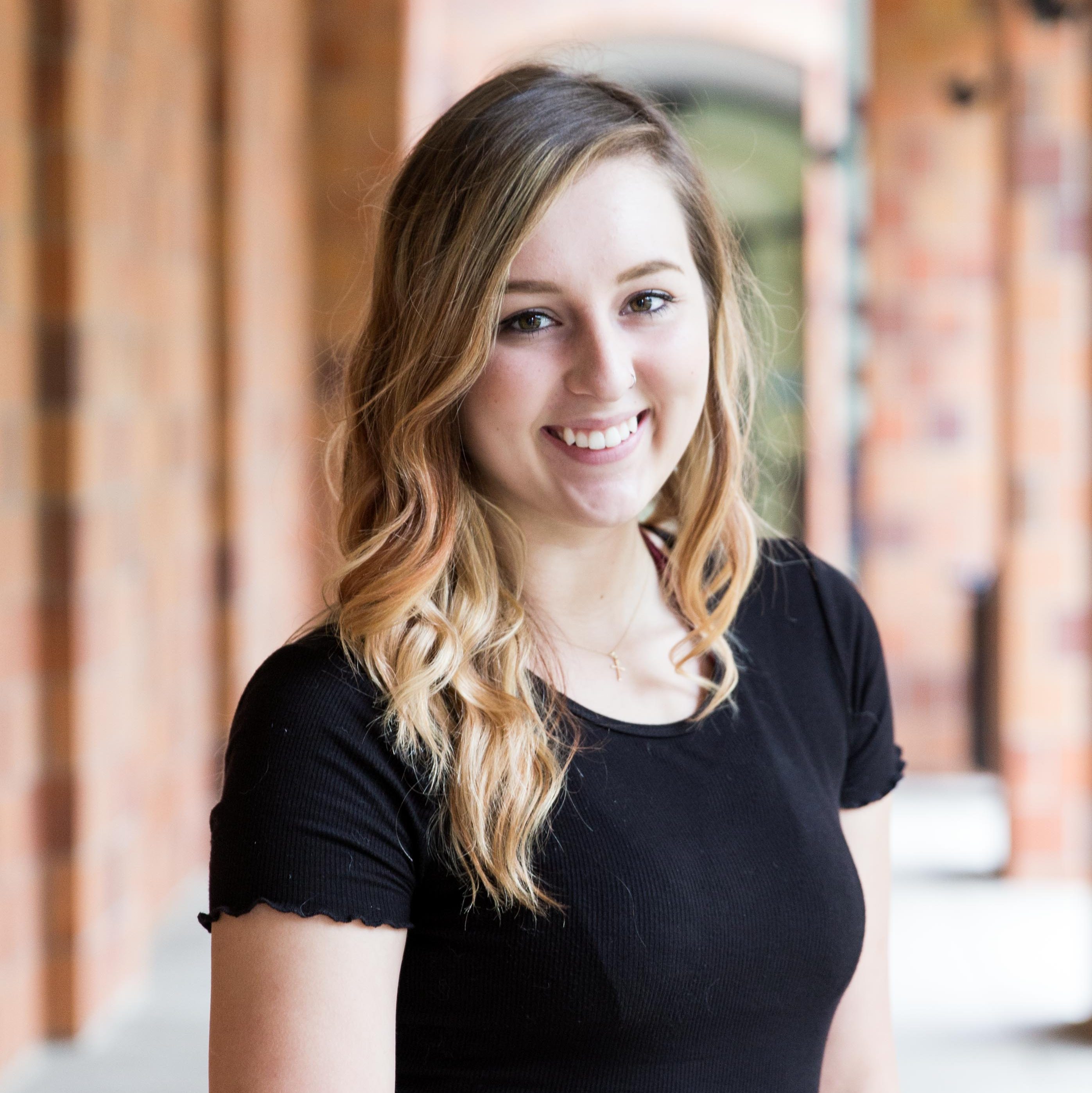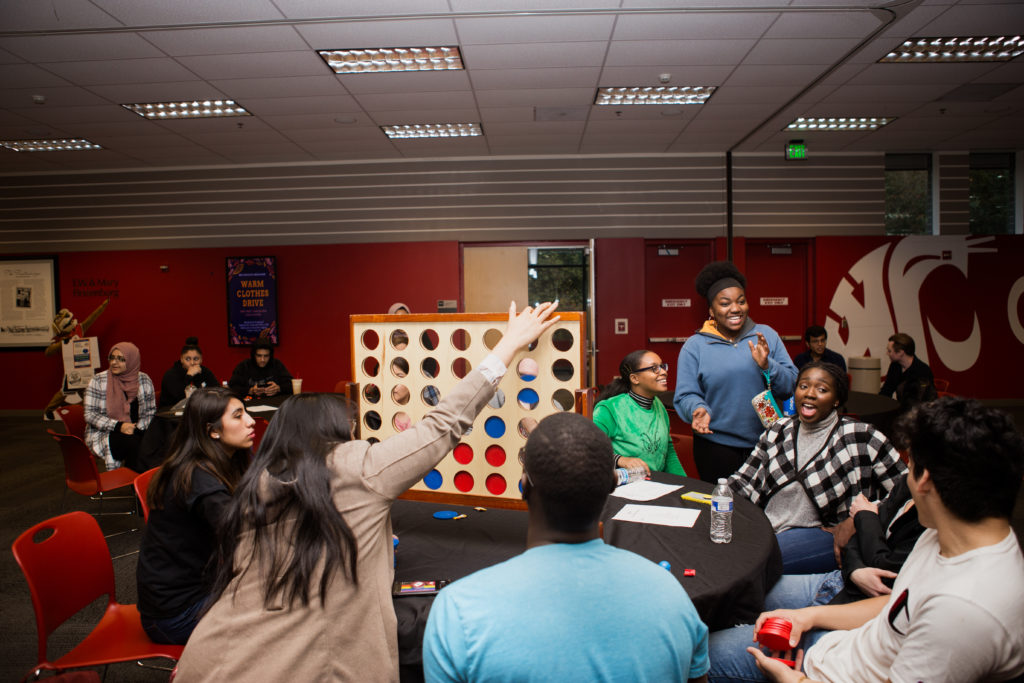
The Muslim Student Alliance hosted the first ever Eid al-Adha celebration on the WSU Vancouver campus on Nov. 15. The festivity, which was held in the Firstenburg Student Commons, included guest speaker Khalid Elolaimi, senior program manager at Intel, games, raffles, prizes, food and desserts. Although Eid al-Adha was celebrated in August this year, the event was postponed to November due to the new establishment of the club on campus, according to MSA member and neuroscience major, Kawther Elolaimi.
Mohammed Hashem, a WSU Vancouver international student from Bangladesh, is currently pursuing his master’s degree in mechanical engineering. Hashem and Elolaimi are both part of the new club, which became active in the fall.
“Eid al-Adha is celebrated to remember a significant event of Islamic history,” Hashem said. Hashem and Elolaimi, explained the religious aspects of the holiday, how God asked Ibrahim [often referred to as Abraham in Christian religion] in a vision to sacrifice his his son. Ibrahim dismissed the request the first two times, but on the third vision he conceded. Ibrahim’s son agreed to the sacrifice since it was an order from God. Instead, according to Sura 37 in the Qur’an, a miracle happened and an animal [ram or lamb] was slaughtered instead of Ibrahim’s son. Now, to commemorate the miracle and Ibrahim’s obedience, animals [most often rams, sheep, goats or lambs] are sacrificed on the 10th of Dhu al-Hijjah every year and meat is shared equally with family, relatives and the poor.

“We want to distribute the meat to poor people and poor relatives to make balance in the society. There are some people who don’t have the ability to buy meat,” Hashem explained.
When the animal is sacrificed, it is divided into three portions, according to Hashem, “One is for your family, one is for poor people, one is for relatives.”
Islam celebrates two major holidays: Eid al-Adha and Eid al-Fitr following the lunar calendar instead of the Gregorian calendar. The lunar calendar allows 29 or 30 days within a month and 355 days in a year. This means that the holidays are shifted approximately 10 days each solar year. Eid al-Fitr is celebrated two months before Eid al-Adha and marks the end of the month-long fasting practiced during Ramadan.
“Within a year, we have to do one month of fasting, from dawn to sunset. It is to realize the [hardships] of the poor,” Hashem said.
Elolaimi explained, “It’s a chance to [humble] yourself and give back to your community. During that time, it’s very encouraged to give back, give donations, to provide meals to those in need and it’s just an eye-opener to see, ‘hey, this is what people are going through.’”
According to Elolaimi and Hashem, both celebrations emphasize charity. “It’s the whole kind of religion. It’s always about giving back.” Elolaimi said.
Hashem said that American holiday culture is comparable to that practiced by Muslims in Bangladesh. “Like Christmas, we also invite our friends and family to visit, celebrate together, we share food, we buy new clothes as people here [in America] buy new clothes for Christmas, it’s almost similar,” Hashem said.
According to Pew Research Center, 90 percent of Americans celebrate Christmas. As of 2017, only 46 percent of Americans said they celebrate it for religious reasons, while the remaining 54 percent celebrate it for cultural reasons.
“Holidays in general all have a similar theme. If you’re talking about back in the Middle East, you’ll see people decorating and having fun in the streets and everything, which is kind of similar…For me, I was born and raised in America, so I’m just used to American culture and American holidays,” Elolaimi said.
The main difference, according to Hashem, is the importance of charity in Islam. “Charity’s kind of mandatory,” Hashem said. Whether for Eid al-Adha or Eid al-Fitr, giving to the poor is one of the five pillars of Islam, making it necessary, along with a testimony of faith, prayer, fasting during Ramadan and a pilgrimage to Mecca. Every year, Muslims are expected to to donate 2.5 percent of their makings to charity as practiced in Islam.
Elolaimi said that WSU Vancouver does a good job of being inclusive during the holidays, “The staff is open and welcome to it and the students want it, so it works perfectly.”
“There is a misconception about the religion of Islam and Muslims actually, so it’s a good opportunity for people to clarify their misconceptions, if they have any questions they can come and ask in the event,” Hashem said regarding the first celebration of Eid al-Adha on campus.

Anna Nelson is the Editor in Chief for the VanCougar. She is a senior and is studying strategic communications.
